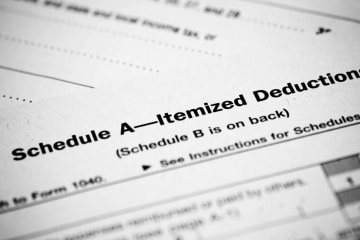Blog
Distributions from Retirement Accounts
Distributions from Retirement Accounts
Sitting by the bonfire, with your favorite drink in hand as you ponder about the year gone by and look forward to the upcoming New Year, your finances and how you plan them surely deserve some mindshare, amongst the clutter of other precious thoughts. While thinking of the immediate and long-term needs, you always want to ensure that you have a well-planned retirement to secure your golden years.
Francis, a banker by profession, had his way with numbers. He knew that knowing your taxes was important to grow your wealth. He knows for those who are nearing the age of seventy (72), there is a little-known tax law called the Required Minimum Distribution (RMD). If you have money put away in IRAs, 401ks, or other retirement accounts, after you reach the age of 72 years old, money must be distributed from these retirement plans, annually.
The Internal Revenue Service requires that distributions be taken, at least, every year once you reach the age of 72 years old. You can wait until April 1st. of the year after you reach 72, to take your RMD, but there are some complications with taking a distribution that late. If you do choose this, you will be required to take two distributions in that year to make up for the distribution that you passed up at age 72.
How much to take out of your retirement plans depends on many factors:
- Your marital status
- The difference in age of the spouses if you are married – if there is a ten year or more difference in age, a different table is used to compute the RMD
- Compute the total amount of all retirement plans, divide it by the factor or number on the mortality table the Internal Revenue Service uses, and this determines what your annual RMD should be
- Repeat steps 1 – 3 annually
For many taxpayers, the value of your retirement accounts will change every year. The value as of December 31st of the previous year is the number that is used to compute the RMD for the current year. (Example: You must compute the total for all your retirement accounts as of December 31, 2019, to help determine what must be distributed by December 31, 2020.)
This distribution can be taken out at any time during the year. It is preferred to take money out every month, in order to not be hit with penalties at year end. This is especially true if someone dies in the year, because in the year of death, the IRS may penalize the estate of the decedent, if at the end of the year, enough RMD was not distributed. The heir to the estate is then held accountable for this because if a taxpayer dies and the RMD for the year was not distributed by December 31, the beneficiary who inherits the IRA or retirement account must take the deceased taxpayer’s distribution by year end and add to that the beneficiary’s income. This can really mess up the beneficiary’s tax situation that year. Be sure you see Azmoneyguy or your tax professional as soon as possible after you find out you are inheriting retirement money!
While taxes are not required to be withheld from distributions, remember to submit estimated taxes, by the deadline to pay for this additional income on your tax return. Azmoneyguy or your tax professional knows these rules, so be sure you compute and distribute your RMD and any estimated income taxes before year end deadlines.
Moreover, you can choose to have your RMD given to any qualified charity. If you choose this route, you pay NO taxes on the amount given to the charity.
Caution, the penalty for not meeting the RMD is now 100% of the amount that should have been distributed, plus interest!
For some taxpayers, taking money out a retirement account is something you dread because it means that you have no choice, financially, but to distribute funds from retirement accounts. This can happen when you find yourself in dire financial straits, like a pending foreclosure on your house! If you are under the age of 59 ½ you could be penalized by the Internal Revenue Service for taking premature distributions. Depending on the type of retirement account you have, the penalty can range from 10% – 25%.
But, not to worry. There is penalty relief, for those under 59 ½, if you withdraw or distribute money from retirement accounts for very specific reasons!
Here are some ways to take money out of a retirement account WITHOUT having to pay a penalty, if you are under 59 ½ years old by the end of the year:
- Death (monies paid to beneficiaries from retirement accounts)
- Divorce (money paid to an ex-spouse as part of a divorce or Qualified Domestic Relations Order)
- Disability (if you take money out because you are totally disabled)
- Education expenses (distributing money for education expenses for you or your dependents)
- Medical expenses (medical expenses paid above 7 ½% of your income)
- Medical insurance if you are unemployed (paying your Health insurance is allowed in the year you are unemployed for 2 months or longer)
- You live in a Federal Declared Disaster area (taking money out of retirement to replace items not covered by insurance)
- Equal distributions over remaining life (taking money out of a retirement account equally over the remaining years of your life). The IRS uses a table to determine the minimum amount to be withdrawn, based on your age at the time you start withdrawing funds.
- Down payment on a house (you can withdraw up to $10,000 to buy a home if you have not owned one in the last 2 years).
- Birth or Adoption of a child costs are allowed as an exception to the penalty, up to $10,000, per parent total.
- Paying back taxes to IRS because of a Levy filed.
- Distributions to qualified Military (reservists) called to active duty (Deployments)
- Rollovers from one retirement plan to another allows you up to 60 calendar days to deposit funds into the new retirement plan.
- Separation from work at 55 or later allows you to retire early, take distributions from retirement plans and not be penalized.
Here are six things from the IRS, that you should also know about EARLY withdrawals from retirement accounts:
- An early withdrawal normally means taking money from your plan before you reach age 59½.
- If you made a withdrawal from a plan last year, you must report the amount to the IRS. You may have to pay income tax as well as an additional penalty tax on the amount of withdrawal.
- The additional tax does not apply to nontaxable withdrawals. Nontaxable withdrawals include withdrawals of your cost to participate in the plan. Your cost includes contributions that you paid tax on before you put them into the plan. Or funds contributed to the plan that did not receive a tax deduction for doing it.
- A rollover is a type of nontaxable withdrawal. Generally, a rollover is a distribution to you of cash or other assets from one retirement plan that you contribute to another retirement plan. You usually have 60 calendar days to complete a rollover to make it tax- free.
- There are many exceptions to the 10% additional penalty tax. Some of the exceptions for retirement plans are different for each type of plan. See the bullet points mentioned earlier, Azmoneyguy or your tax professional to see if any exceptions apply to your situation.
- If you make an early withdrawal, you may need to file Form 5329, Additional Taxes on Qualified Plans (Including IRAs) and Other Tax-Favored Accounts, with your federal tax return.
- Finally, remember that you may be penalized up to 100% of the required minimum distribution if you do NOT take out enough from your retirement account once you reach age 72.
Call today, don’t delay! See how this affects you. We can be reached at 602-264-9331 and on all social media under azmoneyguy.
Be more prepared for this year’s tax season! Get your copy of Bob’s NEW book, 52 Ways to Outsmart the IRS, Weekly Tax Tips to Save You Money on Amazon, Kindle, or at Azmoneyguy.com (available in paperback and eBook).
Related Blog Posts
Tips about Taxable and Nontaxable Income
www.AZMONEYGUY.com(602) 264-9331 Call 24x7Blog Tips about Taxable and Nontaxable Income [DISPLAY_ULTIMATE_SOCIAL_ICONS] This week we discuss what type of income must be reported on tax returns. Are you looking for a hard and fast rule about what income is taxable and...
Itemizing vs. Standard Deduction: Six Tips to Help You Choose
Retirement Savings Tips and Making IRA Contributions
www.AZMONEYGUY.com(602) 264-9331 Call 24x7Blog Retirement Savings Tips and Making IRA Contributions [DISPLAY_ULTIMATE_SOCIAL_ICONS] We all know that to have a good retirement, you must start saving early in life. Not only will saving for retirement help you...
Do You Owe The IRS?
Learn 5 Secrets The IRS Doesn't Want You To Know.
Click on the button below to get FREE access to this exclusive content.
Tax and Financial Advice from an expert
Mr. Hockensmith has been a guest newscaster for national and local TV stations in Phoenix since 1995, broadcasting financial and tax topics to the general pubic. He has written tax and accounting articles for both national and local newspapers and professional journals. He has been a public speaker nationally and locally on tax, accounting, financial planning and economics since 1992. He was a Disaster Reservist at the Federal Emergency Management Agency, for many years after his military service. He served as a Colonel with the US Army, retiring from military service after 36 years in 2008. Early in his accounting career, he was a Accountant and Consultant with Arthur Andersen CPA’s and Ernst & Young CPA’s.
Build strategies, build confidence, build your business.
We are ready to do business with you
Email: [email protected]
Tel: (602) 264-9331 (24x7)
Address:
3404 West Cheryl Drive
Suite A-170
Phoenix, AZ, 85051










